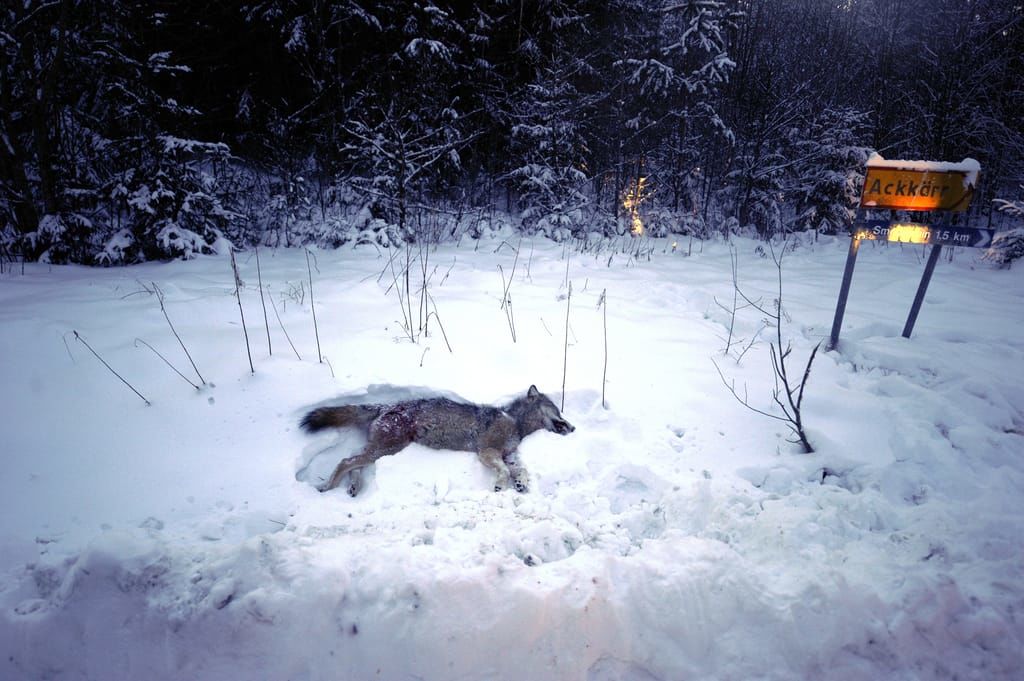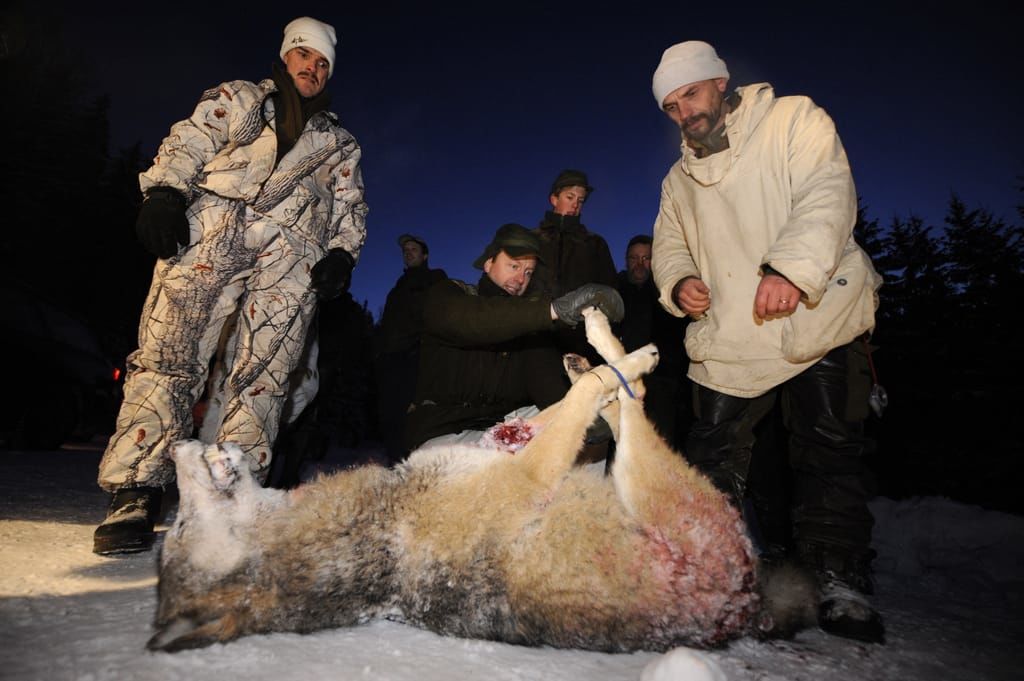
Sweden risks EU ire with historic wolf hunt
Sweden has embarked on the largest wolf hunt in its recent history, sparking blowback from green campaigners and risking a legal fight with Brussels.
The government-approved cull, which began Monday and lasts a month, allows hunters to shoot 75 wolves in several areas in a bid to lower the threat they allegedly pose to farmers, livestock and residents.
Scientists and NGOs are up in arms, arguing that the cull threatens the survival of the vulnerable species. Some also point out that the EU can't argue in favor of protecting wild species in other parts of the world while it eradicates predators at home.
It’s a “disaster,” said Daniel Ekblom of the Swedish Nature Conservation Association’s wildlife management group in Gävleborg, one of the counties where the hunt is taking place.
Shooting several dozen wolves could have a "very, very negative" effect on a population that only counts about 460 and is genetically isolated and inbred after being reintroduced to the area in the 1980s, he said.
Sweden's wolf population is the largest on record — but far below that of many other European countries. Italy counts about 3,300 wolves, Poland has about 1,886, and France is home to 783.
On paper, Sweden's cull would bring its wolf population to 385, but NGOs fear that it could drop below 300 by the spring, as the population would tend to shrink over the winter regardless of the current hunt. They also worry that the government is likely to cut the population further, after parliament last year voted in favor of bringing the number of wolves down to 170.
According to the Swedish Environmental Protection Agency, the country's wolf population needs to stay above 300 for the species to be considered to be in favorable conservation status according to EU laws.
Stockholm insists the wolf cull — the biggest since licensed hunts resumed in 2010 — is a security issue and doesn't break conservation rules. The government last year also stressed that public acceptance of the need to protect wolves is declining.
“Farmers are afraid of investing and their herds are unable to go pasture due to the threat of wolf attacks,” the rural affairs ministry said in a statement to POLITICO. A growing number of news reports point to “dogs getting attacked and families feeling unsafe in their vicinities,” it added.
Hunters vs. conservationists
The government plan is music to the ears of hunting groups and farmers, who argue the hunt is "absolutely necessary" to slow population growth and prevent attacks on livestock.
The Federation of Swedish Farmers also believes the wolf population is “in favorable conservation status, both in numbers and genetically,” said Anders Wetterin, a wildlife expert at the organization.
NGOs and scientists disagree. While the numbers of wolves, most of which are in central Sweden, is increasing, the population's genetic status is still so fragile that a significant drop would threaten its survival.
 A female wolf after being shot down by hunters during a wolf hunt near Kristinehamn in 2010
A female wolf after being shot down by hunters during a wolf hunt near Kristinehamn in 2010
“Hunting, conducted both legally and illegally, has prevented population expansion and the influx of genetic variation,” a group of scientists wrote in a letter published in the journal Science.
Scientific data confirms "persisting genetic isolation," they added, which leads to continued loss of genetic diversity and increases the risk that the animals will go extinct.
That comes with serious risks for biodiversity: Wolves are considered "keystone species," meaning their removal could lead to major changes or even the collapse of a wider ecosystem.
The problem is that the centuries-old notion of the wolf as dangerous animals makes it difficult to rally support for their protection, said Ekblom.
The concerns of landowners and farmers need to be taken seriously, said Benny Gäfvert, predator expert at WWF Sweden, but culls are not a viable solution. Rather, the government should help farmers implement solutions to improve the safety of livestock, for example by using protective fences.
It should also do more to improve the genetic status of the population, Gäfvert added, for example by helping wolves move across the country and breaking isolation patterns.
Calling on Brussels
With the cull already underway, campaigners like Gäfvert are hoping that Brussels will intervene and stop Sweden from ordering more hunts.
The status of wolves is already in the spotlight in Brussels after European Commission President Ursula von der Leyen ordered officials in November to reevaluate the strict rules on protecting wolves in Europe.
In a win for conservative lawmakers, the European Parliament the same month passed a resolution that included a call to downgrade the protection status of wolves — something for which farmers, landowners and hunters have been lobbying hard, arguing that EU nature legislation has been too successful in protecting large carnivores like wolves.
The Commission has twice sent formal warnings to Sweden over its wolf culls — the first steps of an infringement procedure — but has so far stopped short of referring the country to the Court of Justice of the EU.
 Swedish hunters during the 2010 hunt, the first one in 45 years
Swedish hunters during the 2010 hunt, the first one in 45 years
In 2015, the Commission argued that the Swedish wolf population “has not reached a level that guarantees the conservation of the species” and that, by allowing licensed hunts, Sweden established a “systemic practice which infringes” on EU conservation law.
In response to the current hunt, a Commission official said “the infringement case is still open and we are closely monitoring the situation.”











